In 2023, when I started my first AI implementation project for a Fortune 500 client, I soon came to realise that running an AI agency is more than just deploying complex algorithms. After working with several enterprise customers and their complex technical infrastructures, I realized that a successful AI agency must excel in three key areas: technology, law, and client management. For organizations new to this concept, understanding what is an AI agency is and how it operates is the first step to leveraging AI for business growth. This report relies on industry research and our experience implementing an AI solution in several industries.
What is an AI Agency?
An AI agency is basically a consultancy that proposes, develops, and deploys artificial intelligence for businesses, allowing them to either automate their processes, improve decision-making, and enhance the overall efficiency of their operations. If you’re asking, “What is an AI agency ?”, it’s essentially a team that combines technology with strategic consulting to integrate AI into business operations. These agencies help organizations face implementation bottlenecks, ensure compliance, and optimize ROI.
The Evolution of AI Agencies in Today’s Market
The global AI agents market reached USD 5.40 billion in 2024 and is projected to surge to USD 50.31 billion by 2030, growing at a remarkable CAGR of 45.8% according to Grand View Research. This explosive growth underscores the need for talent with specialized expertise to address AI-related challenges.
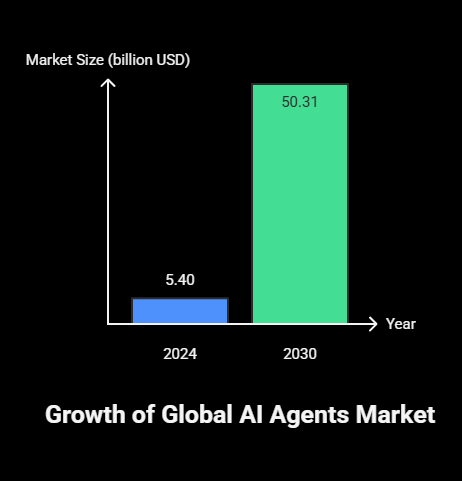
Initially, I observed three types of AI agencies partnering with companies. For anyone trying to understand what is an AI agency is, these categories help illustrate the different approaches businesses can take when adopting AI:
- Pure-play AI solution providers specializing in machine learning, neural networks, and related technologies.
- Hybrid consulting firms that combine business consulting with AI expertise.
- Technology integrators are embedding AI into existing enterprise software ecosystems.
The most successful AI agencies I’ve worked with blend deep technical knowledge with sharp business insight. They don’t just build models—they design complete AI ecosystems that solve today’s business problems while remaining scalable for the future.s problems while being scalable for the future.
Technical Infrastructure Requirements for AI Agencies
Computational Power and Hardware Architecture
Setting up our AI development environment taught me that infrastructure needs go beyond standard cloud computing. AI agencies require access to high-performance hardware—such as GPUs, Tensor Processing Units (TPUs), and specialized AI accelerators for specific workloads.
During a recent deployment for a financial services client, our team required NVIDIA A100 GPUs with 80GB of memory to train large language models on proprietary datasets, as outlined in this paper. We had to use multi-node distributed training since the computations were so heavy that a single training run would allocate about 16 GPUs / 1280 GB total GPU memory.
Drawing from my experience with various client projects, here are the key technical requirements.
High-Performance Computing Resources. AI agencies should have access to scalable computing resources that can accommodate varying workloads. We have seen that hybrid cloud on-premise configurations are the best, as sensitive data is processed on-premise. Cloud resources are used for training, which is computationally intensive.
Robust Data Management Systems. We build data pipelines that are capable of ingesting, cleansing, and transforming very large datasets. For our biggest deployment, we processed over 50 terabytes of unstructured data spread across 42 different data sources with complex ETL processes and real-time data validation systems.
MLOps and Model Deployment Infrastructure. AI agencies become successful when they have complete MLOps (Machine Learning Operations) platforms that can version model testing and deployment, and so on. The 23 different model versions we deployed for a healthcare client took six months to complete, with each requiring extensive A/B tests and gradual rollouts.
Software and Framework Requirements
Today’s AI organizations should be able to master tech stacks together. My team often uses frameworks like TensorFlow and PyTorch, Hugging Face Transformers, and OpenAI’s API ecosystem. Most of the time, it depends on the client and their usage.
When it comes to NLP projects, we have standardized on Hugging Face pre-trained models as well as PyTorch custom implementations for fine-tuning on domain-specific data. Using this method, we were able to save 40% development time while meeting model performance.
Legal and Regulatory Challenges in AI Implementation
Privacy and Data Protection Compliance
The field of data protection is increasingly complex and requires deep specialist knowledge, according to AI agencies. Based on my experience with implementation projects in different jurisdictions, I’ve faced issues in complying with GDPR in European markets, CCPA requirements in California, and states’ emerging AI-related rules.
The important legal challenge occurs when substantial personal data is used to train or infer an AI system. When deploying a customer service AI agent for a multinational client, we had to implement differential privacy techniques to ensure individual data subjects couldn’t be identified from model outputs while maintaining predictive accuracy, as stated in this article.
Data Minimization and Purpose Limitation. AI agencies should ensure that they collect the necessary data and use it for the specified purpose only. In other words, this means putting in place detailed data governance frameworks. Such frameworks must ensure that data lineage is tracked at all stages. These stages start from collection and go through model deployment and eventual deletion.
Cross-Border Data Transfers. AI agency restrictions regarding training data are often faced when dealing with international clients. We created training methods that keep data local but are still able to use models globally.
Liability and Accountability Frameworks
One of the most complicated legal issues AI agencies face is accountability when AI systems generate the wrong decision or harmful output. Legal experts increasingly argue that AI systems should be held to objective standards rather than subjective intent requirements, since AI lacks human-like intentions, as argued in this essay.
In a recent project on AI credit scoring, we incorporated several accountability measures, including model interpretability, audit trails for all decisions, and human-in-the-loop protocols for high-stakes decisions. When regulators asked for a rationale for their decision, they relied on these guards.
Product Liability Considerations. AI firms should manage their solutions like manufactured products, testing their solutions in a thorough manner and documenting design choices. When creating an AI diagnostic test in the medical realm, the number of test cases conducted was 10,000, with a file that recorded how the model behaved with different patients.
Intellectual Property and Copyright Issues
AI agencies are under increasing scrutiny about the copyright of their training data. The recent Thomson Reuters Enterprise Centre GmbH v. Ross Intelligence Inc. case established that using copyrighted content to train competing AI systems doesn’t automatically qualify as fair use under U.S. copyright law, as highlighted in this legal analysis.
To respond to these challenges, successful AI agencies are taking several measures.
Licensing and Data Provenance. Ensure that clear licensing agreements are established for all training data with documentation for all data sources. Clients must now provide proof of ownership or license rights for proprietary datasets used for training.
Safe Harbor Approaches. The execution of technical protections, including content filtering systems that prevent the direct reproduction of training material and prompt filtering to block requests that may infringe copyright.
Client Challenges and Solutions in AI Agency Partnerships
For organizations new to AI, understanding what is an AI agency is crucial before starting a partnership, as it sets realistic expectations and clarifies the agency’s role.
Managing Client Expectations and Understanding
One challenge I often face is closing the gap between what customers expect and what the technology can provide. A recent survey of over 1,000 enterprise technology leaders revealed that 42% of enterprises require connections to eight or more data sources to deploy AI agents successfully, yet many clients underestimate this integration complexity, as reported in this research summary.
Setting Realistic Timelines. Clients often expect fast-development AI solutions, but do not realize how much time data preparation and model training, and validation take. Data preparation on average takes 60–80% of the time spent on the project; this comes as a surprise to many clients based on my experience.
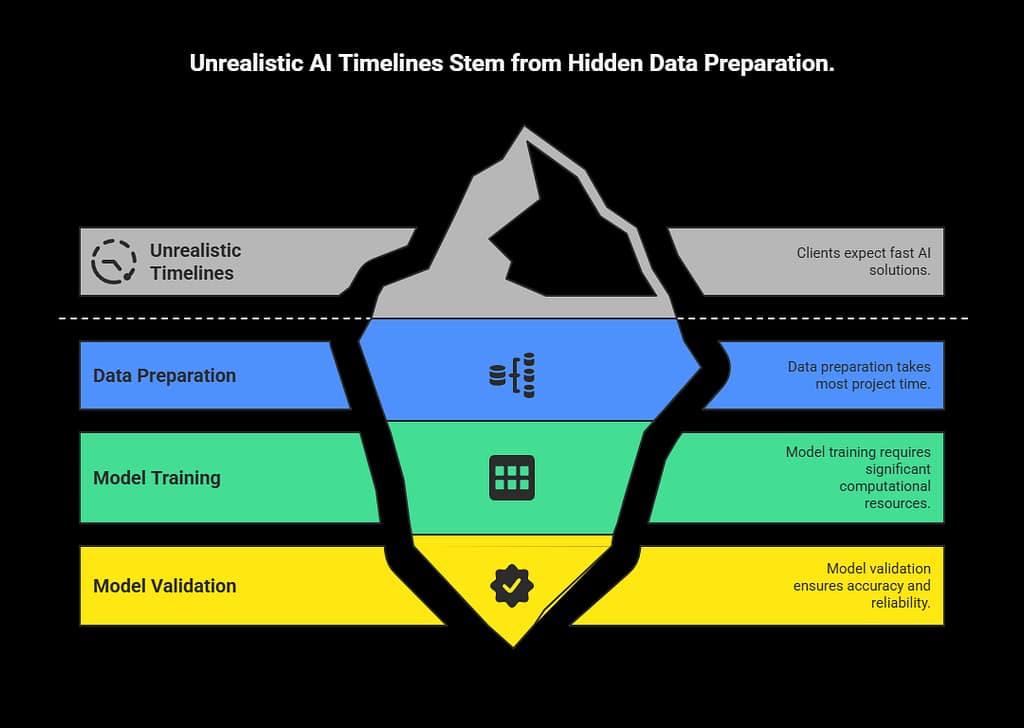
ROI and Performance Metrics. Preventing misaligned expectations later by establishing project success criteria beforehand. Our clients always initiate by defining measurable and specific outcomes and timelines to deliver to them. To evaluate the demand forecasting project of a retail client, we set baseline standards of accuracy and reached an agreement on what would be an improvement before the development started.
Data Quality and Integration Challenges
Most client organizations are wrong with basic data quality issues that significantly impact the AI project. During a process optimization project at the client’s manufacturing plant, we discovered that their sensor data was biased due to systematic drifts in calibration. To extract meaningful patterns from this data, we required novel pre-processing techniques.
Legacy System Integration. Many business customers run hybrid It environments, mixing modern cloud platforms with decades-old legacy systems. To realize AI capabilities effectively, middleware is a sophisticated solution, and in many cases, custom API development.
Change Management and Training. To adapt to new workflows, a successful AI deployment must use a robust change management program. We have learnt to allocate 20-30% of project budgets to training and change management activities, with an improved adoption rate
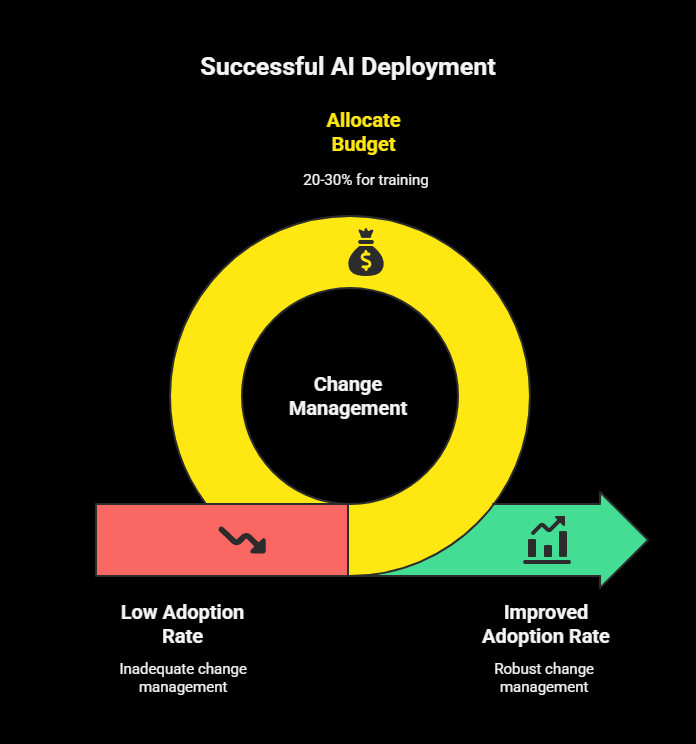
Security and Governance Concerns
According to enterprise clients, security is the biggest concern when implementing AI. In our client survey data, 53% of leadership and 62% of practitioners identified security concerns as their primary challenge in AI agent deployment, as highlighted in this research summary.
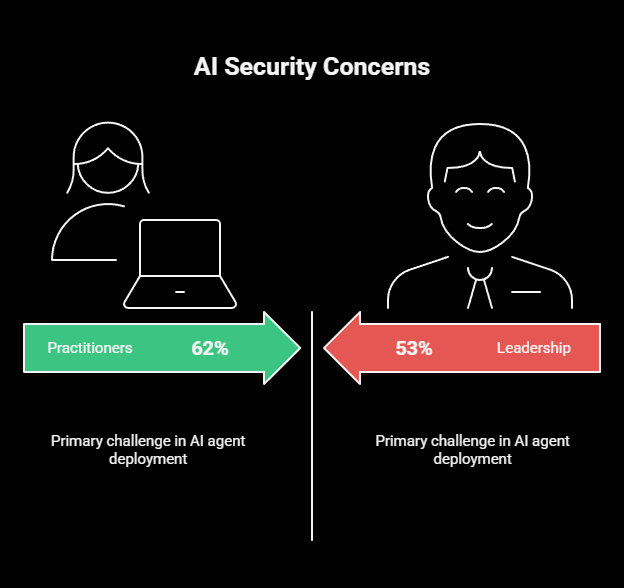
Implementing Zero-Trust Architectures. AI agencies of today must come up with a security-first approach, as per which no implicit trust is assumed.
This means using strong encryption, multi-factor identification, and constant monitoring of the AI system.
Model Security and Adversarial Protection. Security measures involving input validation, output monitoring, and regular security assessments are required to protect AI models from hostile attacks. We have created standardized testing procedures for AI security that test an AI against existing attack methods.
Business Models and Service Delivery Approaches
Consulting vs. Product-Based Models
A successful AI agency will typically have a hybrid business model that involves strategy consulting and technology delivery. Consulting services in the pure format do not earn recurring revenue. On the other hand, a product-only offering lacks enterprise customization.
Most AI agencies that offer sustainable services are built around three market-tiered service offerings.
Strategic AI Assessment and Roadmapping: Early meetings focus on identifying AI opportunities within client organizations and developing implementation roadmaps. These projects typically require an investment ranging from $50,000 to $200,000 and establish a foundation for larger AI implementation initiatives.
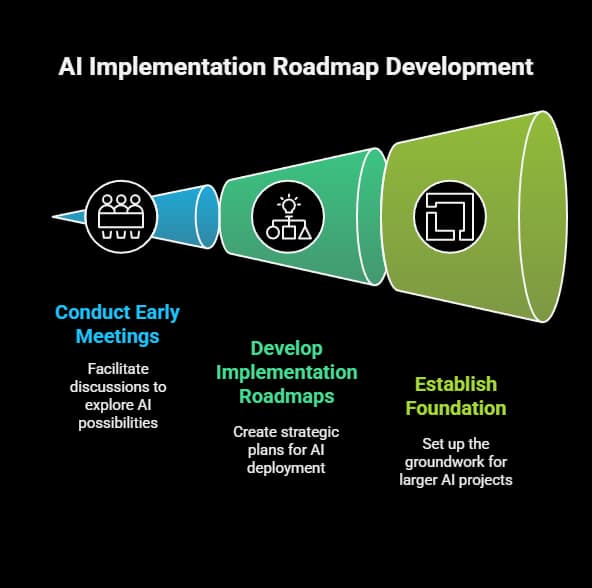
Custom AI Development and Deployment. Development of a full-scale AI solution: from data pipeline creation to model development to production deployment. The multimillion-dollar renovation of the largest residence in the city has recently been completed.
Ongoing AI Operations and Optimization. Ongoing services for model monitoring, retraining, and optimization that generate recurring revenue. Having said that, this method has been vital for consistent client management and growth of the agency in the long term.
Industry Specialization Strategies
The best AI agencies I’ve seen are those that develop deep expertise in a specific industry vertical, rather than trying to be broadly generic to all markets. Healthcare AI firms need to comply with HIPAA, FDA regulations while integrating into the clinical workflow. The AI of financial services must understand something about risk management, regulatory compliance, and real-time fraud detection systems.
Vertical Expertise Development. Gaining industry knowledge is costly as firms need an understanding of the sector, regulations, and technology. This specialization allows premium pricing and reduces competition pressure.
Horizontal Technology Platforms. Some firms are succeeding in making horizontal AI platforms that can be customized for diverse sectors. While it requires high upfront costs, this method can scale widely across different clients.
Technical Implementation Methodologies
Knowing what is an AI agency helps organizations understand the methodologies these agencies use to deliver effective AI solutions.
Agile AI Development Frameworks
Software development methodologies for AI are often common but inadequate, as model development is more of an experiment, and the software will go through different iterations. AI agencies have adopted agile methodologies for their development cycles.
Model-Driven Development Cycles. Instead of developing functions, we develop models in our AI projects. Every sprint is geared towards any improvement of model performance metrics, data quality, or deployment possibilities. This technique gives both the tech team and clients a better understanding of project progress.
Continuous Integration for Machine Learning. For AI projects, one needs special tools that enable model versioning, automated testing, and performance monitoring. We have built standard MLOps pipelines that automatically check model performance, monitor data drift, and create reproducible deployments.
Risk Mitigation and Quality Assurance
AI agencies should use different strategies to address technical and business risks. Continuous monitoring and responses related to model bias, data drift, and performance degradation should be adopted.
Bias Detection and Mitigation. Every project about AI must carry out systematic bias testing across relevant stakeholders and use cases. We have built automated tools that track model outputs for bias patterns like discrimination and inform teams if a problem arises.
Model Interpretability and Explainability. AI systems with reasoning behind their decision-making are increasingly required by enterprise clients. Using explainable AI techniques makes things more difficult, but helps you comply with regulations and earn client trust.
Future Outlook and Market Evolution
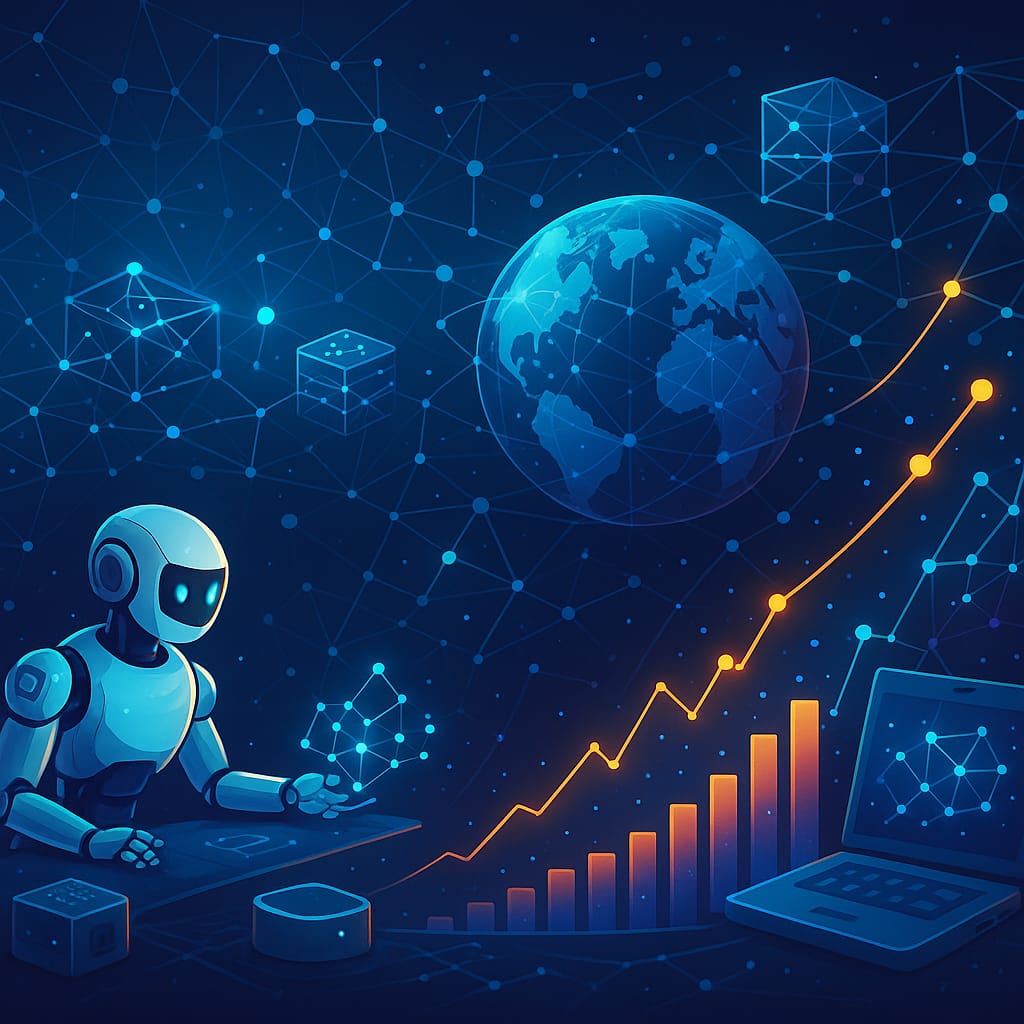
Emerging Technologies and Capabilities
The AI agency ecosystem is certainly on the rise, becoming even more sophisticated with new multimodal capabilities and optimizations for specialized hardware. Given the trends I have been seeing during the development, I expect major changes to take place in the AI agency market in three years.
Agentic AI Deployment. There is a fundamental difference in the delivery model of services when we move from the standard AI application to an autonomous agent capable of multi-step reasoning and action execution. We must create new methodologies to develop, test, and deploy these systems.
Edge AI and Distributed Computing. Demand for AI processing in real time is driving a move towards edge architectures. AI agencies should develop expertise in the deployment and management of AI systems in a distributed computing environment with centralised governance.
Regulatory Evolution and Compliance Requirements
Regulations for AI are increasing rapidly at the federal, state, and international levels. California’s AI legislation, taking effect in 2025, will require enhanced transparency and algorithmic accountability measures, as noted in this legal analysis.
Successful AI companies are putting money into compliance frameworks and regulatory expertise to help their customers in the evolving landscape. These may include establishing standardized assessments to evaluate AI trustworthiness, governance frameworks, as well as keeping in touch with lawyers experienced in AI regulation.
Strategic Recommendations for Organizations
I have experience in implementing AI for multiple industries. At this time, I would advise organizations considering a partnership with an AI agency to assess the following.
Technical Competency Assessment
Assess the AI agency partners based on their experience in working with the relevant technologies, the capability of delivering on projects, and the scaling of solutions across your organization.
Industry Expertise and Compliance Knowledge
Focus on agencies that understand the regulatory requirements, processes, and technical limitations of your industry.
Partnership Approach and Cultural Fit
For successful AI implementations, the agency team must closely partner with internal stakeholders. Assess how potential partners communicate and manage change, plus their willingness to facilitate learning.
Long-term Support and Evolution
Ongoing monitoring, optimization, and adaptation are critical requirements for AI systems. Make sure the agents can support the deployed solutions for the long term.
In the technology consulting space, the AI agency landscape is one of the most dynamic and rapidly evolving sectors. Organizations that get through the noise by picking their partners well and building their own comprehensive AI strategies will enjoy material competitive advantages in an AI-powered world. To use AI effectively for business expansion, it is important to partner with stakeholders who have expertise in strategy transformation, regulatory governance, and culture change.
The AI agencies that possess good technical expertise along with a good understanding of business, regulation, and change management skills will succeed as the market develops. For organizations that are embarking on an AI journey, choosing the right agency partner represents a vital strategic decision that will shape technology outcomes, regulatory compliance, and long-term competitiveness.

